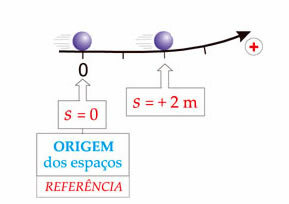It is commonly said that St. Augustine Christianized Plato, just as Aquinas Christianized Aristotle. Like this one, Aquino starts from the sensible to arrive at the intelligible as a process of knowledge.
Thus, the Christian philosopher distinguishes five ways to characterize knowledge and prove the existence of God. Let's see what they are:
1. First motionless engine: this first way supposes the existence of movement in the universe. However, a being does not move itself, so it can only move another or by another being moved. So, if we go back to infinity, we don't explain motion if we don't find a first motor that moves all the others;
2. Efficient First Cause: the second way concerns the effect that this immobile engine entails: the perception of the ordering of things into causes and effects allows us to verify that there is no effect without a cause. In this way, also going back to infinity, we could only arrive at an efficient cause that initiates the movement of things;
3. Being Necessary and possible beings
: the third way compares beings who can be and not be. The possibility of these beings implies that at one time this being was not and became and still becomes not again. But from nothing, nothing comes and, therefore, these possible beings depend on a necessary being to support their existence;4. Degrees of Perfection: the fourth way deals with the degrees of perfection, in which comparisons are verified from a maximum (great) that actually contains the true being (the more or less is only said in reference to a maximum);
5. supreme government: the fifth way speaks of the question of order and finality that the supreme intelligence governs all things (since in world there is order!), arranging them in a rationally organized way, which highlights the intention of the existence of each to be.
All these paths have in common the principle of causality, inherited from Aristotle, in addition to departing from the empirical, that is, from concrete realities and a hierarchically ordered world. It is also worth noting how Thomas Aquinas conceives man. For him, man is an intermediary being. It is composed of body (matter) and soul (form) without which it means nothing, that is, nothing is in isolation. Thus, man is an intermediary being between beings in a more elementary form, such as minerals, plants and animals, and more perfect beings such as angels and God. Man has the characteristics of those before him and also of those coming from the hierarchy of the universe.
However, the knowledge of God is done by analogy, following a life of denial that removes every creature element from him. But this alone would result in agnosticism. And one does not know God immediately as in direct contemplation with the divine essence, but only through an analogical knowledge in that all non-predicated names, explicitly or implicitly in a negative way, apply to Him such an analogical sense, which evidences the infinite distance between the Creator and the creatures and also justifies the statements we make about God (God is Good, Infinitely Wise, etc.).
That doctrine of analogy which includes similarity and comparison is opposed to that of the lighting; this proposes an immediate contact with God. The abandonment of divine Enlightenment - internal experience - by analogy - external experience - entailed its consequences and difficulties, namely: first, God-like creatures because they are caused by Him (mistaken cause) must contain its effects. In this way the cause contains within itself its effects; secondly, nothing is univocally predicable of God and creatures, which according to the above (misleading cause) their effects are also. Univocity fits into categories and is the relation to equivocity, whereas God does not fit into any category. He is simply; and thirdly, some predicates are not stated in the purely equivocal way of God, since for Aquinas, a pure mistake is a term that, by simple causality, is used to designate things diverse. The tautological does not relate to things, and if that were the case, we would not have any knowledge of it; and lastly, that the positive predicates are announced analogously from God and creatures. In our predications, being belongs first to creatures and then to God. And not the other way around, because there are no relationships between them. We designate God from what we encounter in creatures in an infinite way (in relations, the opposite occurs, since the predicate is prior to the nature of any substance).
Therefore, St. Thomas Aquinas attributes the predication of God and the creature, only by analogy, evidencing between them an infinite distance from which no concept transposes, since God infinitely transcends the creature.
By João Francisco P. Cabral
Brazil School Collaborator
Graduated in Philosophy from the Federal University of Uberlândia - UFU
Master's student in Philosophy at the State University of Campinas - UNICAMP
Philosophy - Brazil School
Source: Brazil School - https://brasilescola.uol.com.br/filosofia/cinco-vias-que-provam-existencia-deus-santo-tomas-.htm

